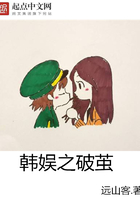The next day he was at his office at the same hour. He was alone--as usual--the Colonel's office being really his private lodgings, disposed in connecting rooms, a single apartment reserved for consultation. He had no clerk, his papers and briefs being taken by his faithful body-servant and ex-slave "Jim" to another firm who did his office work since the death of Major Stryker, the Colonel's only law partner, who fell in a duel some years previous. With a fine constancy the Colonel still retained his partner's name on his doorplate, and, it was alleged by the superstitious, kept a certain invincibility also through the 'manes' of that lamented and somewhat feared man.
The Colonel consulted his watch, whose heavy gold case still showed the marks of a providential interference with a bullet destined for its owner, and replaced it with some difficulty and shortness of breath in his fob. At the same moment he heard a step in the passage, and the door opened to Adoniram K. Hotchkiss. The Colonel was impressed; he had a duelist's respect for punctuality.
The man entered with a nod and the expectant inquiring look of a busy man. As his feet crossed that sacred threshold the Colonel became all courtesy; he placed a chair for his visitor, and took his hat from his half reluctant hand. He then opened a cupboard and brought out a bottle of whiskey and two glasses.
"A--er--slight refreshment, Mr. Hotchkiss," he suggested politely.
"I never drink," replied Hotchkiss, with the severe attitude of a total abstainer.
"Ah--er--not the finest Bourbon whiskey, selected by a Kentucky friend? No? Pardon me! A cigar, then--the mildest Havana."
"I do not use tobacco nor alcohol in any form," repeated Hotchkiss ascetically. "I have no foolish weaknesses."
The Colonel's moist, beady eyes swept silently over his client's sallow face. He leaned back comfortably in his chair, and half closing his eyes as in dreamy reminiscence, said slowly: "Your reply, Mr. Hotchkiss, reminds me of--er--sing'lar circumstance that--er--occurred, in point of fact--at the St. Charles Hotel, New Orleans. Pinkey Hornblower--personal friend--invited Senator Doolittle to join him in social glass. Received, sing'larly enough, reply similar to yours. 'Don't drink nor smoke?' said Pinkey. 'Gad, sir, you must be mighty sweet on the ladies.' Ha!"
The Colonel paused long enough to allow the faint flush to pass from Hotchkiss's cheek, and went on, half closing his eyes: "'I allow no man, sir, to discuss my personal habits,' declared Doolittle, over his shirt collar. 'Then I reckon shootin' must he one of those habits,' said Pinkey coolly. Both men drove out on the Shell Road back of cemetery next morning. Pinkey put bullet at twelve paces through Doolittle's temple. Poor Doo never spoke again. Left three wives and seven children, they say--two of 'em black."
"I got a note from you this morning," said Hotchkiss, with badly concealed impatience. "I suppose in reference to our case. You have taken judgment, I believe."
The Colonel, without replying, slowly filled a glass of whiskey and water. For a moment he held it dreamily before him, as if still engaged in gentle reminiscences called up by the act. Then tossing it off, he wiped his lips with a large white handkerchief, and leaning back comfortably in his chair, said, with a wave of his hand, "The interview I requested, Mr. Hotchkiss, concerns a subject--which I may say is--er--er--at present NOT of a public or business nature--although LATER it might become--er--er--both. It is an affair of some--er--delicacy."
The Colonel paused, and Mr. Hotchkiss regarded him with increased impatience. The Colonel, however, continued, with unchanged deliberation: "It concerns--er--er--a young lady--a beautiful, high-souled creature, sir, who, apart from her personal loveliness--er--er--I may say is of one of the first families of Missouri, and--er--not remotely connected by marriage with one of--er--er--my boyhood's dearest friends." The latter, I grieve to say, was a pure invention of the Colonel's--an oratorical addition to the scanty information he had obtained the previous day. "The young lady," he continued blandly, "enjoys the further distinction of being the object of such attention from you as would make this interview--really--a confidential matter--er--er among friends and--er--er--relations in present and future. I need not say that the lady I refer to is Miss Zaidee Juno Hooker, only daughter of Almira Ann Hooker, relict of Jefferson Brown Hooker, formerly of Boone County, Kentucky, and latterly of--er--Pike County, Missouri."
The sallow, ascetic hue of Mr. Hotchkiss's face had passed through a livid and then a greenish shade, and finally settled into a sullen red. "What's all this about?" he demanded roughly.
The least touch of belligerent fire came into Starbottle's eye, but his bland courtesy did not change. "I believe," he said politely, "I have made myself clear as between--er--gentlemen, though perhaps not as clear as I should to--er--er--jury."
Mr. Hotchkiss was apparently struck with some significance in the lawyer's reply. "I don't know," he said, in a lower and more cautious voice, "what you mean by what you call 'my attentions' to--any one--or how it concerns you. I have not exchanged half a dozen words with--the person you name--have never written her a line--nor even called at her house."
He rose with an assumption of ease, pulled down his waistcoat, buttoned his coat, and took up his hat. The Colonel did not move.
"I believe I have already indicated my meaning in what I have called 'your attentions,'" said the Colonel blandly, "and given you my 'concern' for speaking as--er--er--mutual friend. As to YOUR statement of your relations with Miss Hooker, I may state that it is fully corroborated by the statement of the young lady herself in this very office yesterday."















